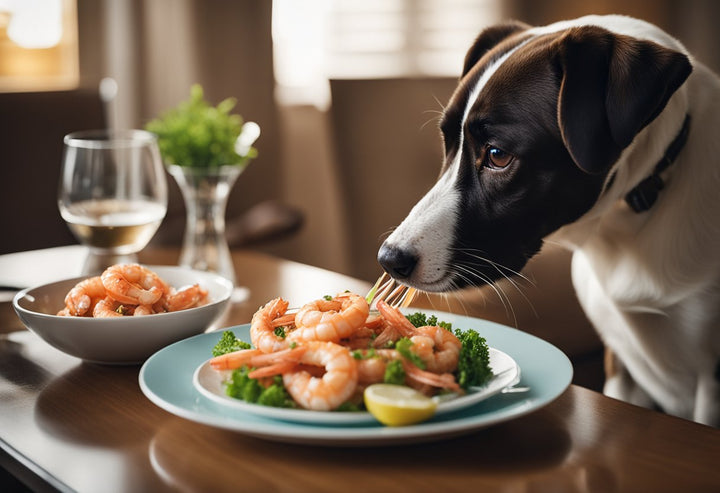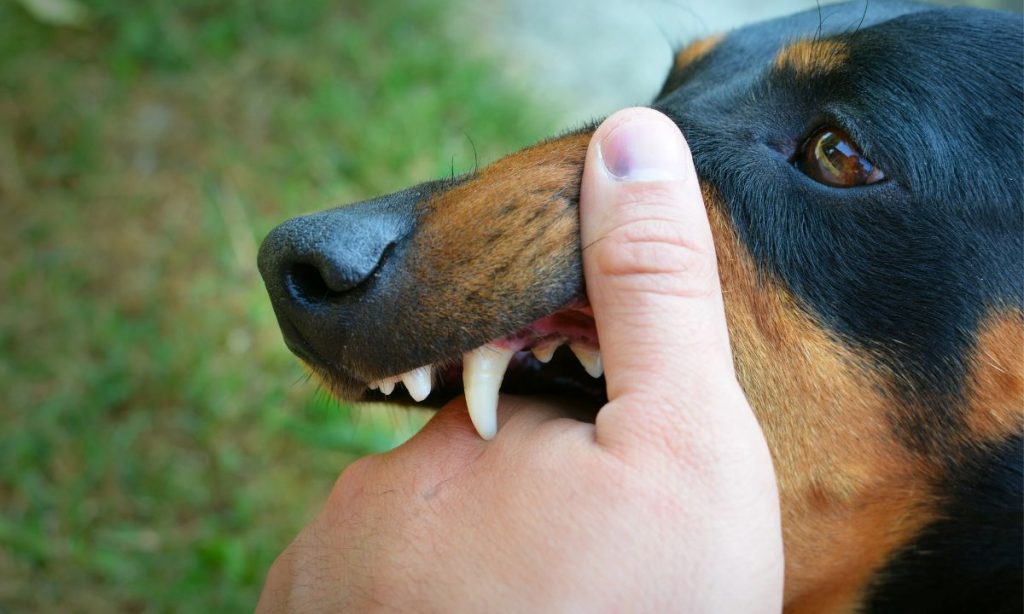Last Updated on May 15, 2024 by Dogs Vets
Can Dogs Have Shrimp? A Guide for Pet Owners
Can dogs have shrimp? Let’s explore this topic in detail.
As a pet owner, you want to provide your furry friend with the best possible care, including a healthy and balanced diet.

When it comes to feeding your dog, it’s essential to be cautious about what human foods you introduce, as some can be harmful or even toxic. One food that often raises questions is shrimp.
The Nutritional Value of Shrimp for your furry friend
Shrimp can be a healthy treat for furry friend in moderation. It is a lean protein source that is low in fat and calories, making it a good option for dogs who need to maintain a healthy weight.
Shrimp also contains several essential vitamins and minerals, such as:
- Vitamin B12: Supports red blood cell formation and neurological function.
- Phosphorus: Helps maintain strong bones and teeth.
- Niacin: Promotes healthy skin and coat.
- Choline: Supports liver function and brain health.
However, it’s important to note that shrimp is high in cholesterol, so it should be fed in moderation, especially to dogs with existing health conditions like pancreatitis or heart disease.

Potential Risks of Feeding Shrimp to furry friend
While shrimp can be a tasty treat, there are some potential risks to consider:
- Allergic reactions: Some dogs may be allergic to shrimp or other seafood. If you notice any signs of an allergic reaction, such as vomiting, diarrhea, or skin irritation, discontinue feeding shrimp and consult your veterinarian.
- Choking hazard: Shrimp tails and shells can pose a choking hazard, especially for small dogs. Always remove the tails and shells before feeding shrimp to your dog.
- Sodium content: Shrimp can be high in sodium, especially if it’s cooked with added salt or seasonings. Excessive sodium intake can lead to dehydration, electrolyte imbalances, and other health issues.
- Digestive upset: Sudden changes in diet can cause digestive upset, such as vomiting or diarrhea. If you decide to feed your dog shrimp, introduce it gradually and in small amounts to avoid gastrointestinal problems.
How to Safely Feed Shrimp to Your furry friend
If you want to include shrimp in your dog’s diet, follow these guidelines:
- Choose plain, cooked shrimp: Avoid shrimp that has been fried, breaded, or cooked with butter, garlic, or other seasonings, as these can be harmful to dogs.
- Remove the tails and shells: Shrimp tails and shells can be a choking hazard and may cause digestive issues if swallowed.
- Introduce shrimp gradually: Start with a small amount of shrimp and observe your dog for any signs of digestive upset or allergic reaction. If all goes well, you can gradually increase the amount.
- Feed shrimp in moderation: Shrimp should be considered a treat and should not make up more than 10% of your dog’s daily caloric intake.
- Consult your veterinarian: If you have any concerns about feeding shrimp to your dog, it’s always best to consult with your veterinarian, especially if your dog has existing health conditions or is on a special diet.
Alternatives to Shrimp for your furry friend
If you’re looking for other protein-rich treats for your dog, consider these alternatives:
- Lean meats: Chicken, turkey, and lean beef are excellent sources of protein that are safe for dogs.
- Fish: Salmon, tuna, and cod are good sources of protein and omega-3 fatty acids, which can promote a healthy coat and skin.
- Eggs: Eggs are a complete protein source and can be a tasty treat for dogs.
- Cheese: Small amounts of low-fat cheese can be a great training treat or reward.
- Peanut butter: Look for natural, xylitol-free peanut butter and feed in moderation.
Conclusion
In moderation, shrimp can be a safe and healthy treat for dogs. However, it’s essential to introduce shrimp gradually, remove the tails and shells, and avoid feeding shrimp that has been cooked with added salt or seasonings.
If you have any concerns about feeding shrimp to your dog, consult with your veterinarian for personalized advice.
FAQs
Can dogs eat raw shrimp?
No, it’s not recommended to feed raw shrimp to dogs. Raw shrimp may contain harmful bacteria like salmonella or parasites that can cause food poisoning in dogs. Always cook shrimp thoroughly before feeding it to your dog.
How much shrimp can a dog eat?
Shrimp should be fed in moderation as a treat, not as a main part of your dog’s diet. A good rule of thumb is to limit shrimp to no more than 10% of your dog’s daily caloric intake. Consult with your veterinarian for specific portion recommendations based on your dog’s size and dietary needs.
Can shrimp cause allergies in dogs?
Yes, some dogs may be allergic to shrimp or other seafood. Signs of an allergic reaction can include vomiting, diarrhea, itching, or skin irritation. If you notice any of these symptoms after feeding your dog shrimp, discontinue feeding and consult your veterinarian.
Can dogs eat shrimp shells and tails?
No, shrimp shells and tails should not be fed to dogs. They can pose a choking hazard and may cause digestive issues if swallowed. Always remove the shells and tails before feeding shrimp to your dog.
Can dogs eat breaded or fried shrimp?
No, breaded or fried shrimp should not be fed to dogs. The breading and frying process adds extra calories, fat, and often salt, which can be harmful to dogs. Stick to plain, cooked shrimp without any added seasonings or sauces.
Can dogs eat shrimp cocktail sauce?
No, shrimp cocktail sauce should not be fed to dogs. It often contains ingredients like horseradish, lemon juice, and hot sauce, which can cause digestive upset in dogs. Stick to plain, cooked shrimp without any sauces or seasonings.
Can dogs eat shrimp tails?
No, shrimp tails should not be fed to dogs. They can pose a choking hazard and may cause digestive issues if swallowed. Always remove the tails before feeding shrimp to your dog.

















